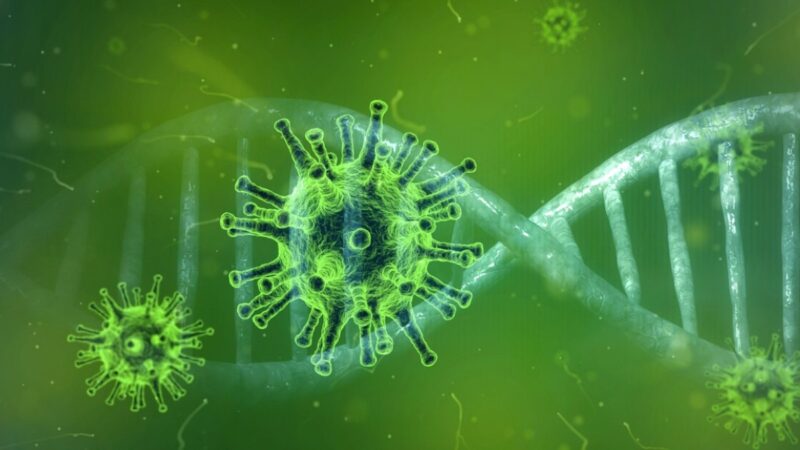Direct translation
The study found that the risk of developing immune diseases after being infected with the covid virus increased by 3 times
Editor : He Yating / https://www.ntdtv.com/gb/2023/02/08/a103644684.html / Image : SARS-CoV-2. Schematic diagram. (pixabay)

A medical research team in Taiwan has discovered by studying big data at home and abroad that half a year after being diagnosed with covid, the probability of suffering from an autoimmune disease is that of an uninfected person 3 times, among which the cases of suffering from ankylosing spondylitis, lupus erythematosus, and rheumatoid arthritis were the most.
In February 2023r, Electronic Clinical Medicine, a sub-journal of the internationally renowned journal The Lancet, published a research report jointly published by the Affiliated Hospital of Sun Yat-sen University of Medicine in Taiwan and the Kaohsiung Veterans General Team. This report put forward the above conclusions.
According to Wei Zhengzong, vice president of the Affiliated Hospital of Sun Yat-Sen Medical University and attending physician of the Department of Allergy, Immunology and Rheumatology, this study uses the global electronic medical record database to include 3.8 million cases of PCR nucleic acid testing from 2020 to 2021. Among them, about 2.9 million control cases were selected, and the age, gender, race, socioeconomic status, life style and underlying disease characteristics of the control group were also specially considered, which should be similar to the research target group. After 180 days of continuous follow-up, it was found that the incidence of autoimmune diseases among those who had been infected with the covid virus was 3%, and their risk of illness was three times that of those who had never been infected.
Among them, the most common one is ankylosing spondylitis, whose risk is 3.21 times that of uninfected people; followed by mixed connective tissue disease, whose risk is 3.14 times; thirdly, systemic lupus erythematosus, which is 2.99 times and similar 2.89 times that of rheumatoid arthritis. In addition, autoimmune diseases that are more prone to occur include psoriasis, xerosis, vasculitis and polymyositis.
Wei Zhengzong pointed out that people with autoimmune diseases induced by the epidemic are more likely to be young, middle-aged and female, and people with comorbidities and abnormal living habits are also susceptible to the disease. Patients with autoimmune disease constitution and acquired disorders are more likely to have immune disorders and induce immune diseases.
For this reason, he called on confirmed patients to seek medical treatment as soon as possible if they develop autoimmune-related symptoms after recovery, such as long-term joint pain, skin rash, unexplained hair loss, fever, and mouth ulcers.
As for why the risk of autoimmune diseases increases after infection, Wei Zhengzong said that it may be related to the activation of the immune response after diagnosis and the generation of a cytokine storm, or the similar structure of viral antigens and human self-antigens, leading to cross-reactions and attacking oneself's cells and organs where the antigen resides. For this reason, he suggested that after the diagnosis, adjust the work and rest as soon as possible, and do a good job in eating and living habits, so that the immune system can return to normal.


No comments:
Post a Comment